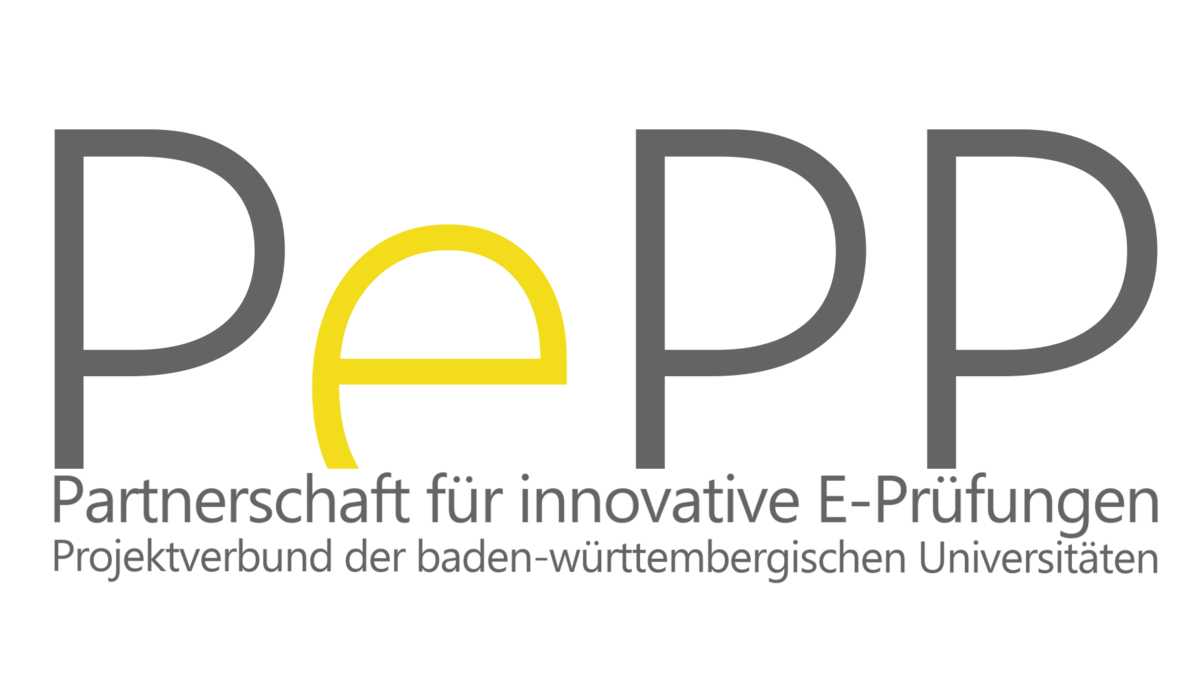Open book upload exams, online exams with video supervision, oral online exams - a lot has changed for students and lecturers in recent semesters. Especially in the area of digital examination formats. Universities have developed many creative solutions in a very short space of time in order to be able to maintain performance reviews with as little loss of quality as possible while avoiding large gatherings.
![]() Contact persons at the ZML
Contact persons at the ZML
Sarah Holstein
Phone: +49 721 608-48219
E-mail: sarah.holstein∂kit.edu
The PePP project (Partnerschaft für innovative E-Prüfungen - Projektverbund der baden-württembergischen Universitäten) exists to share this experience and, building on this, to develop new formats that enable digital examinations even in a post-Corona era, as well as to bundle possible opportunities and challenges of computer-based examination formats and to jointly test technical, didactic and organizational innovations. The project contributes to sustainably strengthening the digitalization of teaching, learning and testing at Baden-Württemberg's universities.
In addition to the nine state universities, the Higher Education Network for Digitalization in Baden-Württemberg (HND-BW) and the Centre for University Didactics (HDZ) are also part of the partnership. The project is funded by the Foundation for Innovation in Higher Education within the "University Teaching through Digitalization" programme for the funding period from October 2021 to July 2024.
Several institutions at the Karlsruhe Institute of Technology (KIT) are involved in the project: In addition to the Center for Media Learning (ZML), the Steinbuch Centre for Computing (SCC) and the Institute for Applied Informatics and Formal Description Methods (AIFB) are also involved.
The focus is particularly on expanding options for conducting online examinations - both on campus and remotely (distance examinations). To this end, new technical developments are being tested and evaluated. The scope of the question formats is also to be expanded as part of the project. The use of the ViPLab application, which is already established at the University of Stuttgart, is expected to start at KIT in the summer semester of 2022. With this solution, lecturers can integrate programming tasks into the exam. From 2024, it is also planned to use an e-assessment platform for graphical modeling tasks, which is currently being developed in the KEA-Mod project.
In addition to the overall coordination of the KIT, the ZML will be responsible for testing the resulting solutions with various user groups, documenting and evaluating the tests and creating training materials for future use. We are interested in a close exchange with the users over the entire duration of the project and would also like to give them the opportunity to contribute ideas. To this end, the ZML is launching a regular exchange starting on January 18, to which all interested parties are invited. Further events of this kind will follow.
The presentation"Overview of the implementation of written online examinations" offers a comprehensive insight into the implementation of written online examinations at the Universities of Karlsruhe Institute of Technology, University of Mannheim and University of Hohenheim. As part of the PePP project, these online examination scenarios were partly newly developed and partly optimized. Various examination scenarios and formats are presented, including written online examinations, written examinations with and without third-party applications, examinations in pool rooms and BYOD (Bring Your Own Device) examinations. A particular focus is placed on the underlying administrative processes and the distribution of responsibilities within the respective institutions.



